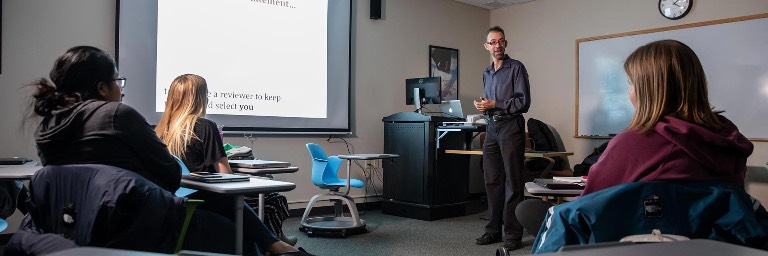Education, Health and Behavior Studies Ph.D.
Bold thinking to lead research and development in higher education, instructional design and kinesiology.
Advanced education and health organizations require innovative leaders who can navigate the challenges of serving diverse students and populations, design curricula and execute research. By earning a doctoral degree in Education, Health and Behavior Studies, you'll be prepared for faculty positions, research appointments or policymaking roles that align with your specialization area.
- Program type:
- Doctoral Degree
- Format:
- On Campus
- Est. time to complete:
- 4+ years
- Credit hours:
- 90
Why earn a Ph.D. in Education, Health and Behavior Studies?
Education, Health and Behavior Studies Doctoral Program
-
In addition to core requirements, students take courses in research methods and electives.
-
Work side-by-side with other students and faculty on research teams.
-
Choose electives from other specializations or other fields of study to round out your knowledge base on your dissertation topic.
-
Up to 30 credits from a master's degree may be transferred from another institution.
-
Apply for funding to support your studies in the program.
-
Enhance your professional skills at 60+ free workshops offered through the UND School of Graduate Studies.
Careers in Education, Health and Behavior Studies
Education, Health and Behavior Studies Ph.D. Courses
